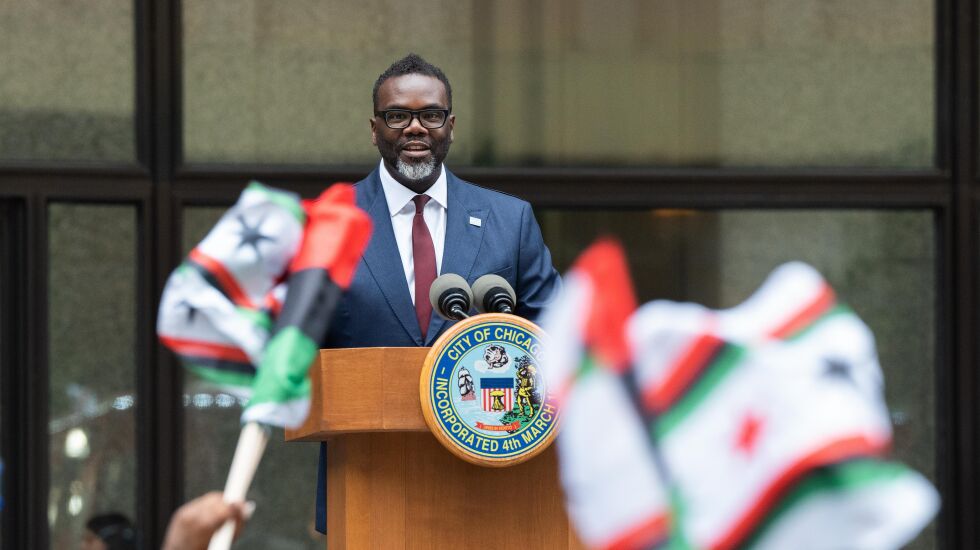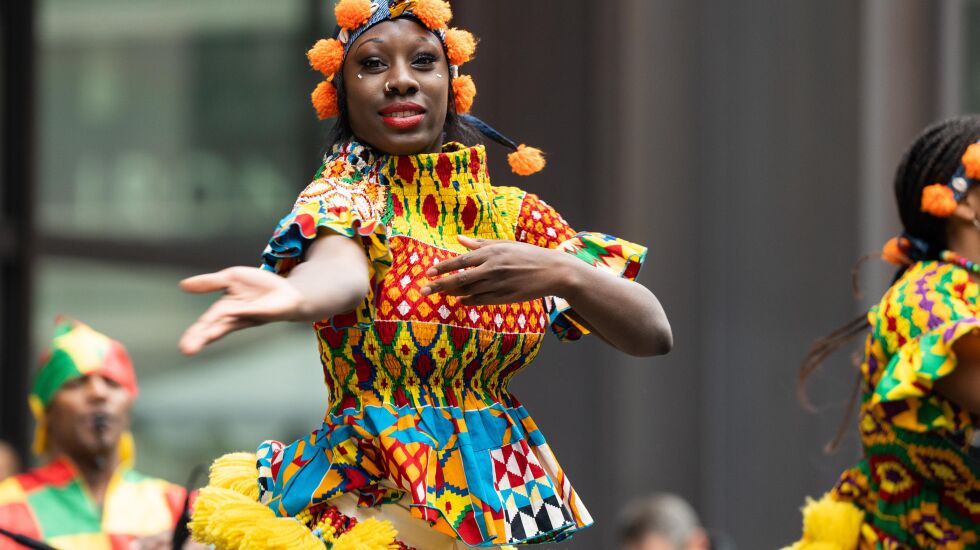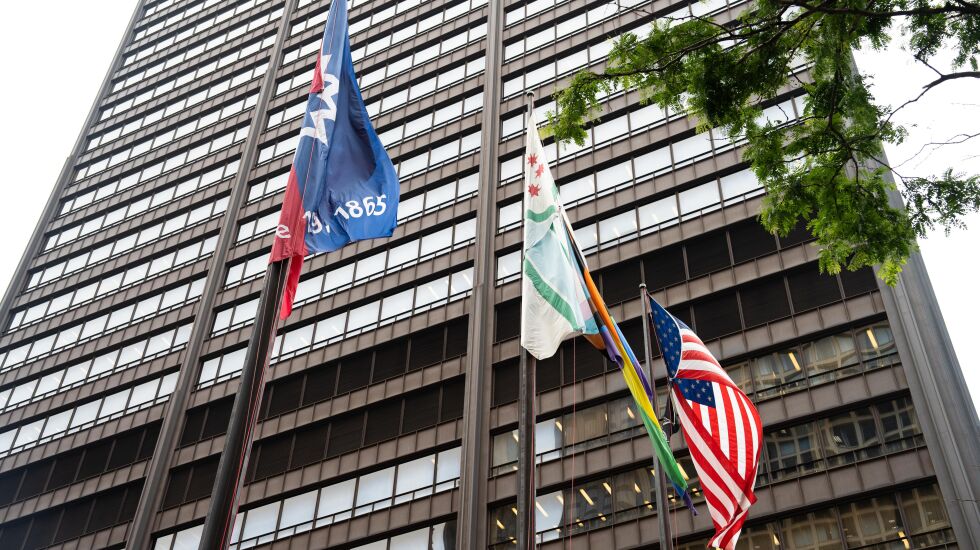
Mayor Brandon Johnson promised Friday to “rebuild the social contract” with Black Chicago, beginning with the actual building of a permanent memorial to Jon Burge torture victims that was promised in 2015.
“Under my watch, we will make sure that the brutal history of police brutality is fully addressed,” Johnson said before the Juneteenth flag was raised in Daley Plaza.
“We all know that many Black men were tortured at the hands of police. And under my watch, we are finally going to complete the Chicago Torture Justice Memorial.”
Although African Americans have made “incredible progress” since being “freed from the bondage of slavery,” Johnson said Chicago’s Black community “still reels from systemic racism and regressive policies that have held us back.”
Black people “still grapple with the history of red-lining and contract-buying and building highways through Black neighborhoods, further segregating and isolating our people,” he said. For decades, Black communities were “disregarded and dis-invested in” with an impact that “still reverberates today,” he said.
“In our most recent history, the city saw the closure of predominantly Black schools where 1,000 Black children are still missing as a result of that horrific act. Two-hundred-twenty-three of them were West Siders,” he told the crowd.
“As we continue to see stores close, residents being forced out of the West and South sides of Chicago, fewer [have] access to options like heathy food and medicine and other necessities. Make no mistake about it, Chicago. We still have work to do.”

Johnson argued the barriers for African American people are so great, it’s fueled an exodus of Black families seeking jobs, quality education and health care and crime-free neighborhoods to raise their children.
Between 2000 and 2020, Chicago’s Black population declined by 265,000 people.
“I want our communities to understand that we are in a new era of local government. We will work with Black Chicago to make sure that Black Chicago is fully serviced with the full force of government. That is the only pathway forward,” Johnson said.
“We can rebuild our social contract in a way that will move us forward in an equitable future. ... A city where Black Chicagoans can live in an affordable community. Where access to health care is available. Fully funded schools and opportunities for our young people. I’ve said it once. I’ll say it again. The best thing we can do as a city is to invest in our young people.”
After the April 15 downtown rampage and crime spree by a mob of young people, Johnson was criticized for condemning the behavior but saying that it was “not constructive to demonize youth who otherwise have been starved of opportunities in their communities.”

During Friday’s ceremony, Johnson said there are “forces that will continue to try to misconstrue my words.”
“We do not condone the outbreak of trauma that is manifested in our communities that have left us in peril. We can make sure that we are not condoning that behavior while also making sure that we are loving people,” the new mayor told the crowd.
“Just like I said before, we are not gonna demonize young people and put a broad brush across every single Black child in this city. … And if you’ve got something else to say, don’t.”
The City Council promised to create a permanent memorial to Burge torture victims in 2015 as part of the agreement that authorized $5.5 million in reparations to 57 victims.
Burge torture victim Anthony Holmes was so moved by Johnson’s pledged to finally deliver that long-stalled memorial, he had to stop several times to catch his breath.
“The memorial means everything to me because it is about the truth. It is about torture Burge and his men committed and everything that we, the survivors, suffered,” said Holmes, who is now 76.
“Building the memorial means that Chicago has finally heard what we had to say. For decades, no one listened to us. ... The memorial will also show the power people have when they come together to fight for justice. It is part of the healing we need.”







